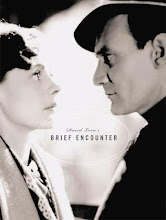The film, Interview with the Vampire: The Vampire Chronicles, directed by Neil Jordan is based on the book by Anne Rice. Made in 1994, the film stars Tom Cruise, Brad Pitt, Antonio Banderas, Christian Slater and a young Kirsten Dunst. This is a fine, engaging film with exquisite sets and evocative performances but what it certainly isn't is a horror film. Most themes in the movie are common to most vampire films, but Interview with the Vampire is autobiographical-in first person-inasmuch that the film is about a vampire telling his life history spanning many centuries to a young journalist, Daniel Molloy. Thus, we receive a panorama of choice events seen and felt by Louis.
Vampire films distinguish themselves by playing with contradictory themes and paradoxical characters. Thus, Louis, aged 24 having renounced life awaits death and Lestat, the lonely vampire, impressed by Louis’ passion converts him into a vampire. On conversion, Louis can perceive differently yet, he is horrified when he learns of what his fate entails. The passion which makes him a vampire, is also the only mortality left in his immortal being. For, he cannot kill humans because of the guilt it causes. Thus his ‘dark gift’ comes with the ability to feel.
He spirals downward into a bigger morass of paradoxes, when he finally gives in and drains Claudia, only a girl. Lestat however makes her into a vampire to be their companion. The audience is now being prepared to deal with a serious ethical problem of Claudia. Claudia, the vampire ages, but she is forever trapped in the body of a young girl. Louis’ passion is contrasted with Claudia’s ruthlessness; even though a child she kills easily and mercilessly. Despite having nearly killed her, Louis is passionate about her, looking at her as a daughter. Of course, Claudia is more ambivalent, addressing Louis as ‘love’ and ‘beloved’. She avenges her existence by killing Lestat by feeding him dead blood and by cutting his head.
In the quest to find a vampire community and therefore to find answers to his questions-which include finding out what a vampire truly is-he and his adopted child go to Paris, where they meet Armand who runs the Theatre des Vampires, where in the course of the plays they conduct they kill people on stage. The sets are beautiful and extravagant. A further distinction is made again, between Claudia and Louis’ passion. While Claudia thinks it extremely clever of ‘vampires who act as people who act as vampires’, Louis is disgusted. This defines his passion, as an essentially individual thing.
When, at the Theatre des Vampires, Armand’s men kill Claudia and Madeline by exposing them to sunlight; Louis then seeks revenge by killing the entire troupe sans Armand. Here, we see his passion kindled into fury and revenge only because Claudia was killed. There is a certain justification in it and the viewer completely agrees because of the importance given to the presentation of the very emotional bond between the vampire and his adopted child on screen. Thus, opposed to the vampire’s apathy Louis’ passion is reasserted.
His passion is part of his individualism, which is contrasted with the mob-like vampire community of Paris. Thus he is able to reject Armand’s offer though it would have meant he could learn the answers to his questions. Further, he refuses to help or join Lestat who we find out has not died yet though we sense his underlying something of a respect, since he after all is his maker.
The film is able to present a much nuanced view of the vampire community successfully though in autobiographical terms, it could have been easily a one-man story. The passion is finally reflected in the purpose of Louis’ interview. As Armand had pointed out to him before, Louis has the power to reflect; and this telling is a subjective perspective on his own life. This telling however, has the opposite effects. The journalist is enchanted by his life, or probably the gift of immortality and asks him to make him into a vampire. Disgusted, he leaves. Ultimately, this sensitivity is contrasted with Lestat’s who comes back a second time, and tells him in the same way he had told the youthful Louis centuries back; that he is to be given a choice. Thus, while Louis sees conversion as a bestowal of a curse, Lestat sees it indifferently as a gift he can freely give.
Subscribe to:
Post Comments (Atom)






No comments:
Post a Comment